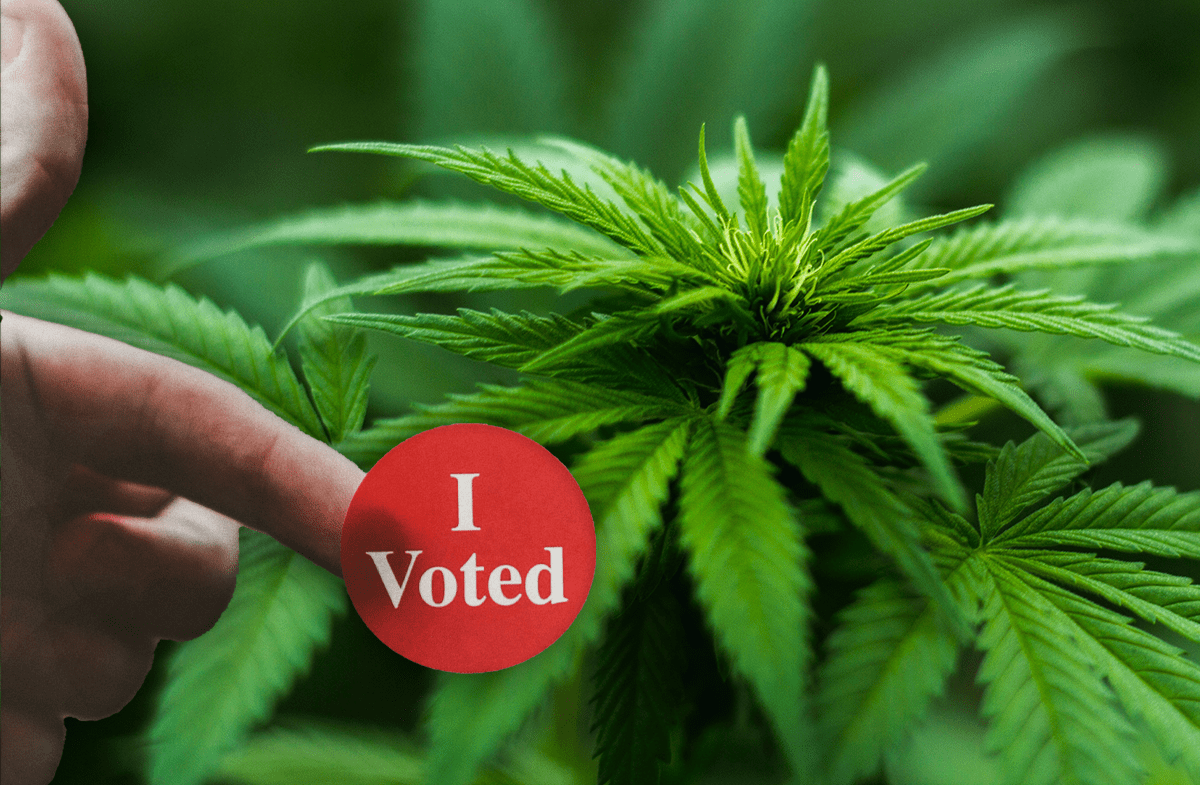
In last week’s post, we noted that adult-use and / or medical cannabis legalization measures were on the ballot in five states: Arizona, Mississippi, Montana, New Jersey, and South Dakota. The legalization initiatives were successful in all five states.
Voters approved Proposition 207 to legalize cannabis for adult-use by a significant margin, according to Ballotpedia, after a similar measure failed in the 2016 election.
The legalization of a recreational cannabis market in Arizona will have the most immediate and pronounced impact on our U.S. Spot Index of any of the legalization measures passed in this week’s elections. Arizona’s medical cannabis system is one of the largest and most established in the country, with 130 licensed businesses operating hundreds of dispensaries and large production facilities with no caps on cultivation capacity to serve roughly 280,000 registered patients. This robust, existing supply chain should allow the state’s operators to expand to serve the adult-use market relatively rapidly. Sales could begin as soon as March, according to the Arizona Republic.
We explained in last week’s post that Mississippians had two choices on their ballots to legalize medical cannabis in the state. Initiative 65 was a voter-initiated measure placed on the ballot by gathering signatures, while Alternative 65A was placed on the ballot by the state legislature. In short, Alternative 65A would have legalized medical cannabis, but with significantly more restrictions compared to Initiative 65.
Ultimately, Mississippi voters approved Initiative 65, according to Ballotpedia, legalizing a more commercially viable medical cannabis system in the state. The measure requires that medical cannabis cards be issued to patients by August 15, 2021. Whether sales will begin by that time remains to be seen. The state legislature has already demonstrated its opposition to the measure by placing its competing initiative on the ballot; it may work to stall or undermine the approved Initiative 65, delaying the establishment of a new market. Such a scenario occurred most notably in Maine, which only last month began adult-use cannabis sales after voters approved legalization in 2016.
Montana voters approved I-90 to legalize cannabis for adult-use in the state, where there is already a relatively small medical cannabis market. According to the text of the ballot measure, officials are required to promulgate rules and begin accepting applications for licenses no later than October 1, 2021.
Residents of New Jersey approved Public Question 1 to legalize cannabis for adult-use in the state, according to Ballotpedia. New Jersey already has a relatively small medical cannabis program that is not included in our reporting, as all the businesses are vertically integrated and there is no wholesale trading.
A report from the Philadelphia Inquirer notes that there is no timeline within the measure specifying when licenses must be issued and sales are to begin. The Inquirer report also points out that New Jersey legislators have already been working on implementation legislation, with the possibility that sales could begin as soon as late 2021.
However, as we mentioned, New Jersey’s medical cannabis program is quite small. According to the state program website, there are only 12 dispensaries operational in the state currently. Past reports from state regulators indicate that existing businesses have struggled to meet demand from the state’s roughly 80,000 registered patients. Given this situation, combined with the fact that adult-use demand from in-state residents and surrounding metropolitan areas – such as New York City and Philadelphia – will certainly be robust, it appears that New Jersey’s adult-use cannabis market will take some time to establish itself and be able to supply consumer demand without product shortfalls and high prices.
In South Dakota, both Constitutional Amendment A and Initiated Measure 26, legalizing adult-use and medical cannabis, respectively, were approved by voters last Tuesday. Prior to the two measures going into effect, cannabis remains illegal in South Dakota and there is no existing commercial infrastructure to build upon, unlike in Arizona, Montana, and New Jersey.
According to the sources cited above, state officials are required by Amendment A to pass legislation implementing the measure by April 2022; Initiated Measure 26 mandates that the state Department of Health must enact rules implementing a medical cannabis program by October 29, 2021.